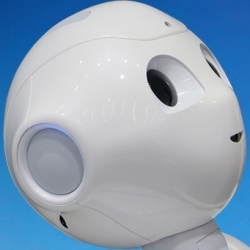
Artificial intelligence is slowly making its way into the realm of modern healthcare. Google’s DeepMind is revolutionizing eye care in the United Kingdom, and IBM’s Watson is tackling cancer diagnostics on par with human physicians. Both AI systems use deep learning, a concept loosely mirroring how our own brains work.
As medical imaging technology continues to take advantage of every new deep learning breakthrough, the challenge is that the computing technology on which it relies must evolve just as quickly. A company called Nvidia is leading that charge under the guidance of Kimberley Powell, who is confident that Nvidia’s processors are not only meeting the deep learning standards of medical imagining, but also pushing the industry forward as a whole.
Nvidia’s hardware has established its silent but prominent role in deep learning’s marriage with medicine. Powell believes projects like their specialized computers, such as the DGX-1 a powerful deep-learning product, will become increasingly more common in hospitals and medical research centers. Strong computing power, like what the DGX-1 can provide, stands to increase the reliability of the diagnostic process; something that, in turn, would significantly boost the standard of care in developing countries.
While AI won’t be replacing doctors anytime soon, it will provide physicians with tools to more efficiently — and reliably — assess patients. AI is already involved in mining medical data, diagnosing medical images, studying genomics-based data for personalized medicine, and improving the lives of the disabled.
Thanks to NVIDIA’s DGX-1, hospitals can efficiently compare a single patient’s tests and history with data from a vast population of other patients. Some medical research centers and startups are automating the analysis of MRIs, CT scans, and X-rays to assist physicians in making a diagnosis. Others are utilizing deep learning to create genetic interpretation engines to identify cancer-causing mutations in patient genomes, bringing to life the concept of personalized medicine.
However, while AI will no doubt continue to revolutionize medicine for years to come, physicians often find themselves perplexed by how to incorporate the technology into their regular practice. Only once AI is accepted, and fully integrated, into medicine will we see the full potential for the technology in terms of lending itself to more efficient and accurate diagnostics — from routine checkups to more specialized fields.
